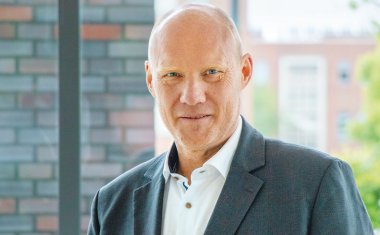Security Management at Daimler Truck
Andreas Osternig, Global Head of Corporate Security and Chief Security Officer Daimler Truck spoke with GIT SECURITY about developing and implementing security regulations and processes.
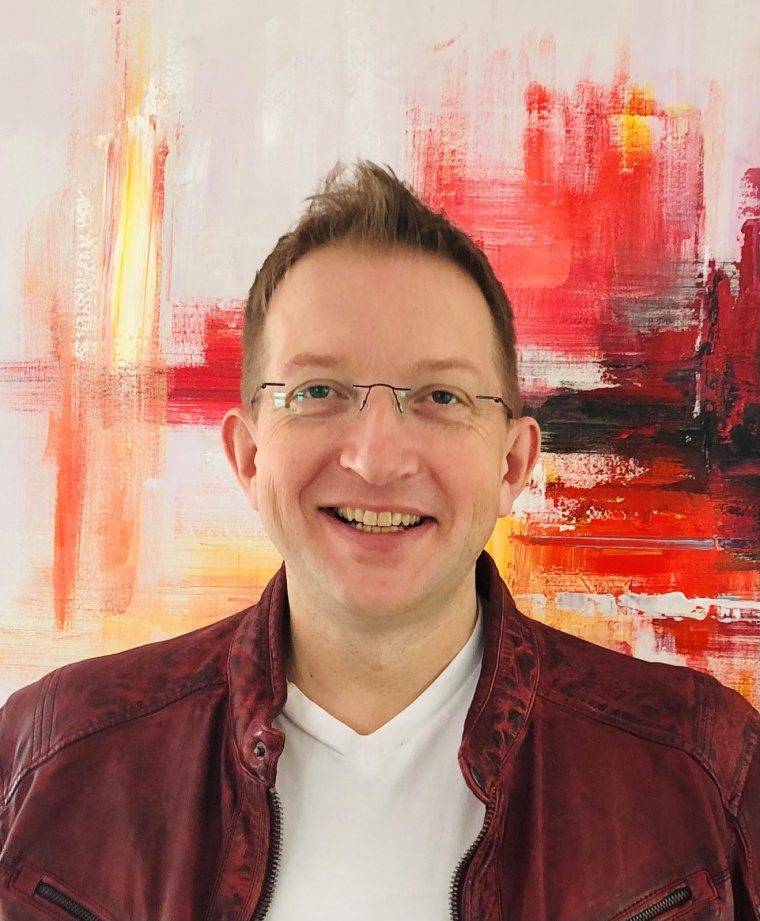

The company is young and old at the same time: it emerged from the Daimler corporation about a year ago – and was immediately listed on the DAX. Daimler Truck today employs around 100,000 people at more than 40 locations worldwide. Security management has the spirit of a start-up.
GIT SECURITY: Mr. Osternig, first of all, for those who put the business section of the newspaper to one side unread: in spite of its traditional-sounding name – and the fact that it is DAX-listed – Daimler Truck is a very young company, isn’t it?
Andreas Osternig: Quite true: sometimes I consider us to be a ‘DAX-listed start-up’, whereby this is only partly true and refers mainly to our independence as a commercial entity. Many of our locations have a very long and successful history behind them and were also largely responsible for the success of Daimler AG in the past.
The company has many locations – each with its own security officer. Tell us about this organizational structure.
Andreas Osternig: The list of tasks for corporate security is long and broad, so we have organized them into a matrix that is aligned with the Daimler Truck management divisions to best be able to react to the various requirements they each bring. Corporate security also shares responsibility with other central operational divisions on various matters, company data protection, for example.
Mr. Osternig, you are responsible for the corporate security of Daimler Truck worldwide. Can you tell us a little about your background?
Andreas Osternig: I got involved with the subject of security over twenty years ago through my business administration background on the subject of fire protection and site security in the chemicals industry. In 2004, I moved to the automotive sector and from there I was able to take on various positions in a number of automotive companies – locally, nationally, internationally, and now worldwide.
Could you tell us broadly what your tasks are and what you are primarily occupied with?
Andreas Osternig: Our main activity during 2022 was to structure the first year of Daimler Truck as an independent company together with my team. This means that we had first of all developed and then implemented all the security regulations and processes of Daimler Truck AG. We were able to start with our joint history of the Mercedes-Benz Group on some matters, but for others it was and is necessary to adapt the security aspects to the needs of our company.
The job brought with it the very pleasant task of building part of the new corporate security team. On the one hand, we have a very experienced team at our manufacturing locations, another important part of our team moved from Daimler to our company and these two groups were enhanced by specialists and managers who we recruited externally. This has resulted in a very good mix of significant security experience, curiosity, and an international mindset coupled with great flexibility and enthusiasm. And we notice that every day.
From an organizational point of view, we were of course also confronted with the implementation of Covid protection measures, as well as the effects of the war in Ukraine, and faced with major challenges right at the beginning of our ‘company history’ in terms of crisis management.
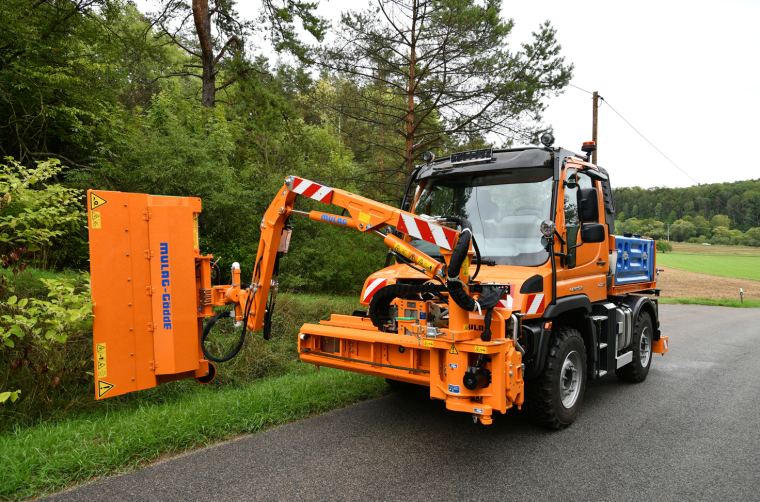
Mr. Osternig, you mentioned during our first contact that there is a real ‘start-up’ spirit at Daimler Truck. In what way is this noticeable – in the organization as a whole and specifically in the corporate security team?
Andreas Osternig: It can be seen throughout the whole company: starting with the members of the management team who demand and promote an extremely pragmatic method of working; by the flat hierarchy and direct access to senior management; through the extremely simple and rapid processes; and, above all, the decision-making. And that is also reflected here in the corporate security group: our employees work with autonomy and are able to make their own decisions within their area of responsibility. We often have to get an overview of events in our job, consider the situation and make quick decisions but remain flexible enough to adapt as necessary. This requires the ability to work under stress, flexibility and a culture of openness towards errors throughout the whole team.
The structural separation from Daimler was a major change. How did your team come together?
Andreas Osternig: Some of our staff decided to move from the Mercedes-Benz Group (previously Daimler) to Daimler Truck. They had very different reasons for doing so: some wanted a change and to be able to make their mark – or they had the desire to develop security in a previously unknown environment. Others wanted to put their practical and management experience to good use in a new company. This mix has created an optimistic mood, a start-up spirit. We have the responsibility, and in particular the management team, to develop and maintain this positive atmosphere in the long term.
How have information security and cyber security been reorganized?
Andreas Osternig: We handle these two subjects together with nearby central departments and they are currently being reworked for Daimler Truck. This concerns both the discussion of content as well as the organizational structure and responsibilities. We are establishing the ideal working methods for our company here, too.
A fundamental security job is crisis and emergency management. Could you describe the tools and processes that you have put in place?
Andreas Osternig: The first step was to take a good look at the aspects and needs of our company with respect to crisis and emergency management before we moved to a concept stage. We were able to benefit from the experience obtained from pandemic management that provided us with real-life scenarios, and this enlightened the scale of emergency and crisis management for us. Building on that, we have implemented a tailor-made emergency and crisis management organization throughout the company and correspondingly trained up the responsible staff. The model is supported by standards and technical tools and checked by regular training sessions and audits.
The corporate security of a DAX concern naturally also includes the safety and security of the AGM, for example. Can you manage this with your own resources or do you work with external service providers?
Andreas Osternig: The shareholders’ meeting is certainly the most important for a DAX company for a number of reasons. Corporate security is responsible for security at the AGM. This mammoth task is impossible to manage alone, so there is an organizational team at Daimler Truck that ensures the success of the AGM 2023 through a lot of early planning and attention to detail. Of course, discussing the matter of security with appropriate members of our security network from various sources is a core element of this.
Mr. Osternig, you evidently do your job with a great deal of enthusiasm – and probably because at Daimler Truck it is all new and you can do everything differently?
Andreas Osternig: Yes, you could say so. Footballers would call it a perfect hat-trick: it is a great feeling to be able to do this great job in a great company together with a great team, and I’m very grateful for that.
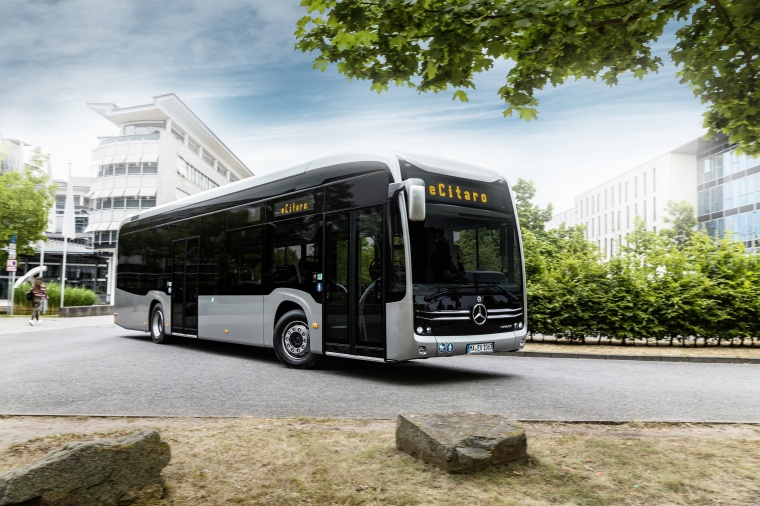
Business Partner
Daimler Truck AG
70771 Leinfelden-Echterdingen
Germany
most read

Assa Abloy's battery-powered Aperio KL100 secures lockers
Boost workplace security and operational flexibility by securing more than just doors.

Safety and Security in an Emergency: How companies take responsibility with strategic personal protection and amok prevention
Personal protection & amok prevention: strategic concepts, training & responsibility for corporate safety and security
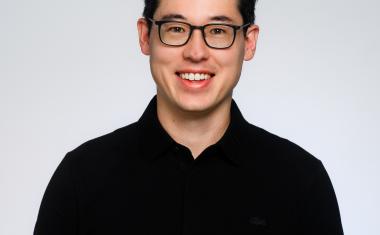
Between War and Peace: Hybrid Attacks and Their Impact on Critical Infrastructure
FOCUS TOPIC GERMANY - Hybrid attacks and drones: Security risks for Germany, its companies and critical infrastructure.


When the Internet stumbles: Why DNS is important
When DNS fails, the internet stumbles-AWS outage proves resilience and redundancy are vital for digital trust

